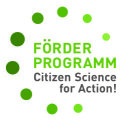Regulatory Flexibility and Metacognition in Self-Control
Contact person: Marie Hennecke
Self-control conflicts are conflicts in which a person has to initiate or persist in an aversive task or resist a temptation in order to reach personal goals. To accomplish this, people can use a wide variety of self-control strategies (such as thinking about the positive or negative consequences, enriching the task with something pleasant, set specific goals and many more). In this context, is flexibility in the use of strategies important for successfully resolving self-control conflicts? Specifically, three components of flexibility are of interest: The context-sensitive selection of a strategy, the repertoire of different strategies a person uses, and the monitoring of feedback regarding the efficacy of a chosen strategy. In addition, we are interested in metacognition in the service of self-control. How do people plan their behavior to avoid self-control conflicts? Do they know their strengths and weaknesses when it comes to self-control? And what are the antecedents and the consequences of these metacognitive processes?
Metacognition, Self-Awareness and Social Perceptions of Self-Control
Contact person: Joniada Agalliu
Self-control conflicts arise when individuals face choices that offer immediate gratification but conflict with long-term goals. We are interested in the role of metacognition and self-awareness in managing these conflicts. Individuals often claim to know their strengths and weaknesses in self-control, but how do they apply this knowledge in daily life? Does a more nuanced understanding of their self-control strengths and weaknesses improve their ability to solve self-control conflicts? Additionally, we investigate the social dimension of self-control. To what extent can others assess a person's self-control strengths and weaknesses? Does relationship closeness influence the alignment between self- and other reports of self-control?
Self-Control, Affect and Hedonic Orientation in Daily Life
Contact person: Lukas Berndt
Showing good self-control is associated with many positive outcomes, such as academic and professional achievements, good health and satisfying relationships. However, self-control conflicts are often described as aversive experiences that induce negative affect because resolving them requires foregoing desired pleasures or enduring discomfort or effort. In contrast, recent research has argued that hedonic orientations (seeking pleasure, enjoyment, comfort or relaxation) and hedonic experiences can be part of adaptive self-control. This research project therefore investigates three questions: (1) Is the use of self-regulatory strategies with hedonic orientation beneficial for self-control success and well-being? (2) Which personality traits predict this behavior (i.e. trait self-control, trait hedonic capacity, trait task-enjoyment)? (3) How are affect and self-control success related more generally? Is positive affect associated with self-control success and negative affect with self-control failure?
Intraindividual Variability of Approach and Avoidance Motivation
Contact person: Marie Hennecke
With Veronika Brandstätter, University of Zurich
With Melanie Koch, Ruhr-University Bochum
With Miriam Pfister, University of Zurich
With Andy Elliot, Rochester University
With Annette Brose, Humboldt-University of Berlin
Goals can be directed towards positive end-states (approach goals, e.g., passing an exam) or towards negative end-states (avoidance goals, e.g., not failing an exam). What are the consequences for the experience of goal-related means, that is, for the goal-directed activities (e.g., studying) whether a person´s goal is an approach goal or an avoidance goal? How can we explain intra- and interindividual differences in the extent to which a person thinks, feels, and acts in an approach- or in an avoidance motivated manner? What are antecedents and consequences of current approach and avoidance goal states in school and romantic relationships?
Self-Control and Thought Processes
Contact person: Johannes Koopmann
With Pooja Kulkarni, Saarland University
What people think during a self-control conflict (e.g., about whether they are “licensed” to treat themselves to a little indulgence) likely impacts the outcome of the self-control conflict. In this project, we aim at investigating the role of trait self-control on though processes during self-control conflicts.
Self-Regulation and Personality Development
Contact person: Sabrina Fuths
With Marion Spengler, Medical School Berlin
Developmental transitions like the one from school to university may be a time when a lot of personality changes happen. In this project, we investigate how demands of the transition and individual efforts to cope with these demands cause result in behavior change, habit formation, and lastly, more sustainable personality change.
Using Machine Learning to Identify the Best Predictors of Self-Control
Contact person: Marie Hennecke
With Anabel Büchner. Humboldt-University Berlin
With Kai Horstmann, University of Siegen
In this project, we use machine learning to identify the items that best predict self-control in daily life, while separating between different aspects and components of self-control.
FAIR: Families for Inclusion and Their Rights
Contact person: Sabrina Fuths
With Christian Walter-Klose, University of Cologne
With Hilda-Heinemann Schule, Bochum
The citizen science project FAIR, funded by the Hans Sauer Foundation, addresses inclusion barriers faced by families with children affected by disabilities, chronic, or mental illnesses. It focuses on youth services, health systems, and counseling contexts, examining how these systems either support or hinder family autonomy and how this impacts parental mental health. Additionally, the project analyzes power dynamics and the marginalization of parental expertise, particularly in healthcare settings.
Through surveys and peer-to-peer interviews, the project collects parents’ lived experiences to reveal systemic barriers and develop solutions that foster greater self-determination and participation. Its findings aim to inform policy and practice, improve collaboration between families and support systems, and contribute to social innovation and sustainable advocacy networks.
To strengthen exchange and visibility within the citizen science community, FAIR is also featured on the national platform mitforschen.org, where further information and updates about the project can be found.
The results of FAIR are presented to the wider public in an exhibition at the Bochum City Library, inviting dialogue about inclusion and the everyday realities of families navigating complex support systems.
